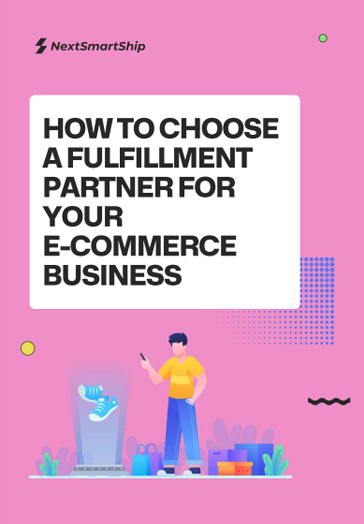Starting from July 1, 2021, the European Union (EU) will be making crucial changes to its value-added tax (VAT) rules. These changes will primarily affect businesses that export goods to buyers in the EU and distance sellers.
The new VAT rules are meant to address the challenges of existing VAT for distance sales of products, importing low-value consignments, and overcoming barriers to cross-border selling.
However, these changes raise a lot of questions for online business owners. What do these changes mean for my business? How will I comply with the new rules? Why are these rules changing? Fortunately, we have the answers for you.

What’s Changing?
Here’s a summary of the changes to expect
The current limits for distance sales (transactions where goods are delivered or transported to a private individual in a different EU member state, and the supplier is responsible for delivery) within the European Union will be overhauled. In their place is a new limit of EUR 10,000. Below this figure, distance sales of goods within the Union might still be subject to Value Added Tax in the member state where the taxable individual resides.
There is now a new category of supply of goods – Distance sales of imported merchandise in consignments that do not exceed EUR 150
Small imported consignments of up to EUR 22 will be subject to VAT.
New VAT compliance measures will be implemented to enable operator reporting. Online sellers may register in a single EU member state, then declare and pay VAT on all distance sales and cross-border supplies of service to consumers in the EU through the new union OSS (A one-stop shop that businesses can use to comply with VAT requirements).
Furthermore, there will be a new special scheme (called the Import One Stop Shop or IOSS) for imported goods categorized as distance sales and consignments not exceeding EUR 150.
There will be new simplification measures for courier and postal companies that enable the payment of import VAT when goods enter the EU. These measures will cover distance sales of imported goods in consignments that do not exceed EUR 150 where the IOSS is not utilized.
In some situations, online platforms that enable transactions will be categorized as deemed suppliers, i.e., having received and supplied the merchandise for themselves. This designation applies whether or not they have legal ownership over the goods. There will be new record-keeping arrangements for such entities.
Some invoice responsibilities will be amended as a consequence of the changes mentioned above.
Who will be Affected?
These changes will affect all stakeholders in the eCommerce supply chain, from online vendors and platforms both inside and outside the European Union to couriers and postal operators, customs, and tax administrations.
Online sellers
There are two significant changes for online sellers to consider.
- The current thresholds for distance sales to buyers in other EU member states will be removed and replaced by a standardized EU threshold of EUR 10,000. If your transactions do not reach this threshold, you can apply existing domestic VAT rules (including the SME exemption program) to your cross-border sales. If your sales exceed this threshold, you will be required to clear VAT in your buyers’ member states.
- The VAT exemption for goods entering the UK not exceeding EUR 22 will be removed. Consequently, all goods imported into the EU will be subject to VAT.
Electronic interfaces
Electronic interfaces are a broad category. They include portals, websites, marketplaces, gateways, application programming interfaces, and platforms.
Electronic interfaces like online marketplaces will have new VAT obligations. They may become deemed suppliers (as explained in the section above) and have specific record-keeping responsibilities.
Consumers
The new tax system offers several benefits to consumers, including limited tax fraud, enhanced adherence to environmental and health standards, and competitive trade.
Consumers will also enjoy greater transparency, as there won’t be undisclosed customs fees on imported goods.
Note: VAT and other applicable charges will be levied on goods ordered before July 1 but imported or delivered on or after this date.
Vendors
The new VAT requirements will achieve a relatively uniform and straightforward set of charges for all business enterprises involved in cross-border e-commerce, whether from inside or outside the European Union. All commercial merchandise imported into the EU will be subject to VAT regardless of their value. Online sellers and marketplaces making distance sales of imported merchandise to EU consumers may use the newly established IOSS to declare and pay VAT.
Why are the rules changing?
The primary objectives of the new VAT scheme are to
- Reduce the costs of meeting cross-border VAT requirements within the European Union
- Place businesses in the EU on equal footing with those outside.
- Increase VAT remittances for member states by increasing the VAT tax base and reducing fraud.
An In-depth Look at these Changes and their Impact
These rules will have a far-reaching effect on all stakeholders in the supply chain, like individual sellers and marketplaces. Consequently, all distance sellers operating inside the European Union or importing into the Union will need to review the applicable VAT requirements after July and take appropriate action.
Businesses seeking to enter the EU market may establish a presence within the region to avoid excessive duties. Still, they will need to plan proactively so they register in time in the appropriate Member States. For instance, the registration process for some OSS platforms can only be effected at the start of a calendar quarter, meaning missed deadlines could have disastrous effects.
Businesses will also need to adhere to strict compliance and record-keeping requirements. Failure to adhere to these deadlines could result in steep penalties and cause businesses to be barred from the OSS schemes.
Note
Although the UK is no longer part of the EU, these changes will subject UK businesses (particularly retailers, marketplaces, and postal/courier companies) to significant changes.
As part of the UK’s departure from the European Union, it was agreed that Northern Ireland would abide by EU VAT requirements concerning the supply of goods. In light of these obligations, Her Majesty’s Royal Customs will introduce the required One-Stop Shops to encourage VAT compliance. However, it’s unlikely the relevant portals will be ready by July 2021.
Wrapping up
The new VAT fees will affect your operations whether you choose to pass on the extra fees to the consumer or deliver your products duty paid. Regardless of your choice, you’re going to need an effective strategy to address the additional costs while offering competitive pricing.
The good news is that Nextsmartship is here to help. We have the logistical capacity and expertise to help you meet all your order fulfillment and warehousing needs. We would love to help you achieve your vision and grow your brand. Contact us today for unparalleled technical support and service delivery.
The information provided does not, and is not intended to, constitute legal and/or tax advice; instead, this information is for general informational purposes only. This information may not constitute the most up-to-date legal or other information. Readers should contact their own advisor to obtain advice with respect to any particular legal and tax/or tax matter.




